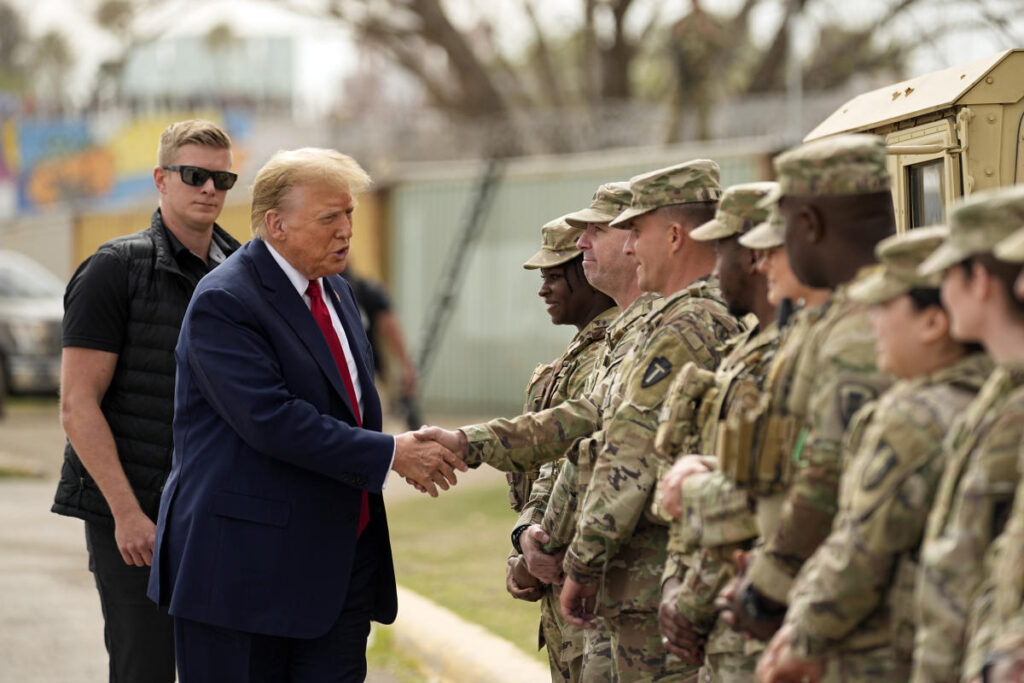During his initial term as president, Donald Trump explored and challenged the boundaries of military involvement in U.S. policymaking. As he gears up for a potential second term, he and his supporters are looking to broaden this approach significantly, transforming the military into a robust instrument for executing domestic policy. Trump has openly expressed intentions to recall thousands of American troops stationed overseas to deploy them at the U.S.-Mexico border. His proposals go beyond traditional roles, suggesting the military could play a part in immigration enforcement and managing civil unrest. Alongside these ambitions, Trump has indicated a desire to purge military ranks of those who may oppose his administration ideologically, indicating a shift that could have substantial consequences for both domestic military use and the United States’ international standing.
As Trump campaigns against Democratic Vice President Kamala Harris, he is doubling down on aggressive immigration policies. Speaking at a rally in Colorado, he painted a dire picture of localities like Aurora as overrun with violence from foreign gangs, despite local evidence contradicting his claims. Trump’s rhetoric not only underscores his commitment to confront illegal immigration head-on, but it also reveals a willingness to utilize the military as part of this strategy. His campaign, encapsulated in “Agenda 47,” emphasizes mobilizing troops from overseas for border enforcement, creating a new precedent for military involvement in domestic issues, which has historically been a delicate subject.
In his vision, Trump has hinted at a multi-agency approach that incorporates the Justice Department, Homeland Security, and the Pentagon to engage in what some within his administration describe as unprecedented military operations against immigration. Such plans include utilizing the National Guard and possibly active-duty troops for deportations, a move likely to raise significant concerns regarding civil liberties and human rights. Advocacy groups warn that deploying military resources for domestic operations would echo some of the most troubling chapters in American history concerning government overreach and civil rights violations, spurring fears of a return to more authoritarian practices.
Despite the controversial nature of these proposals, there seems to be a supportive undercurrent among Republican lawmakers. Trump’s statements resonate with various factions in the party, and some express willingness to embrace more militarized approaches to border security. Notably, members of Congress demonstrate a blend of hesitance and endorsing rhetoric for military involvement, reflecting divisions within the Republican Party between more traditional conservatives who favor measured foreign engagement and those aligned with Trump’s “America First” doctrine advocating isolationism.
Potential implications of Trump’s expanded military role extend beyond immigration issues. With past incidents underscoring the tension between civil rights and military intervention, the prospect of invoking emergency powers under the Insurrection Act or similar historical precedents raises alarm bells. Such actions could facilitate a significant recalibration of the military’s role in civilian matters and transform the landscape of American law enforcement, especially considering Trump’s previous attempts to deploy military personnel amid civil unrest, which faced internal military opposition during his first term.
Looking ahead, concerns mount within democratic circles about the diminishing checks on presidential military power. Efforts by Democrats to revise frameworks like the Insurrection Act have met with limited success, leading to fears about Trump’s potential actions should he return to office. Critics argue that Trump’s perspective on military use reflects a profound misunderstanding of its constitutional role, suggesting that the military should not be an extension of presidential whims but rather a protector of democratic values. In contrast, voices within the Republican Party increasingly advocate for military deployments to tackle pressing social issues like illegal immigration and drug trafficking, indicating a shift in both perception and policy direction regarding the military’s function within American society.

